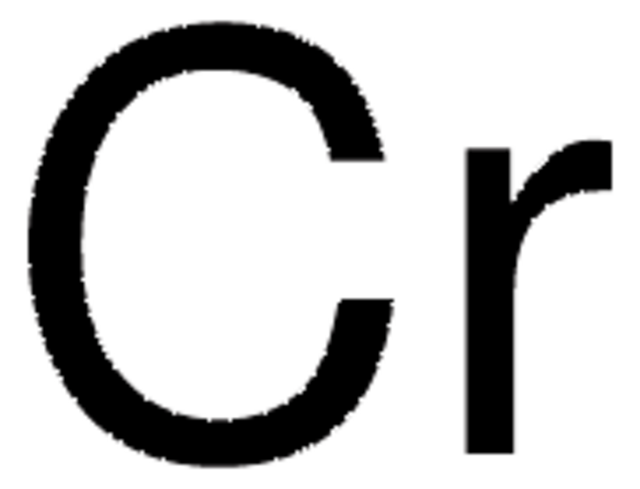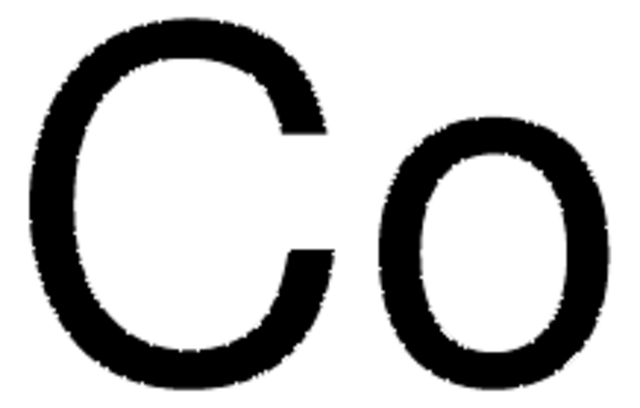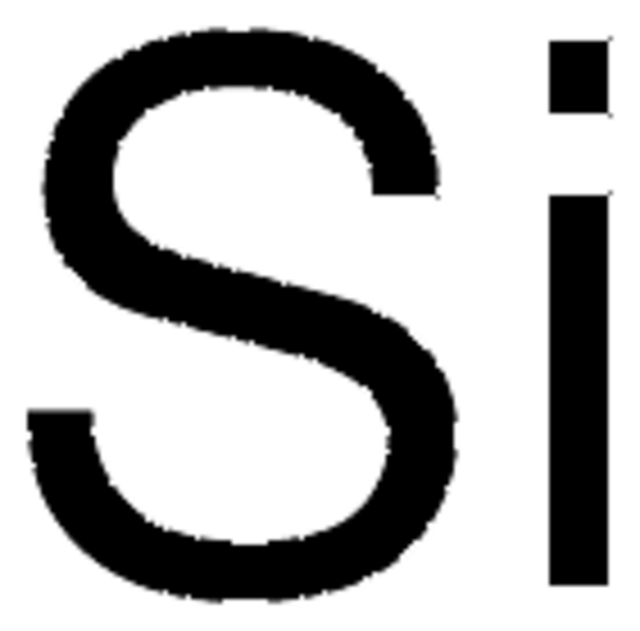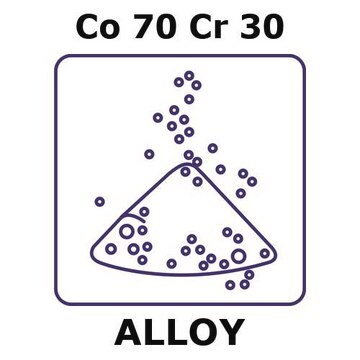266299
Chromium
powder, ≥99% trace metals basis, <45 μm
Synonyme(s) :
Cd
About This Item
Produits recommandés
Niveau de qualité
Pureté
≥99% trace metals basis
Forme
powder
Pertinence de la réaction
core: chromium
reagent type: catalyst
Résistivité
12.7 μΩ-cm, 20°C
Taille des particules
<45 μm
Point d'ébullition
2672 °C (lit.)
Pf
1857 °C (lit.)
Densité
7.14 g/mL at 25 °C (lit.)
Chaîne SMILES
[Cr]
InChI
1S/Cr
Clé InChI
VYZAMTAEIAYCRO-UHFFFAOYSA-N
Vous recherchez des produits similaires ? Visite Guide de comparaison des produits
Catégories apparentées
Description générale
Application
Code de la classe de stockage
11 - Combustible Solids
Classe de danger pour l'eau (WGK)
nwg
Point d'éclair (°F)
Not applicable
Point d'éclair (°C)
Not applicable
Équipement de protection individuelle
Eyeshields, Gloves, type N95 (US)
Faites votre choix parmi les versions les plus récentes :
Déjà en possession de ce produit ?
Retrouvez la documentation relative aux produits que vous avez récemment achetés dans la Bibliothèque de documents.
Les clients ont également consulté
Notre équipe de scientifiques dispose d'une expérience dans tous les secteurs de la recherche, notamment en sciences de la vie, science des matériaux, synthèse chimique, chromatographie, analyse et dans de nombreux autres domaines..
Contacter notre Service technique





